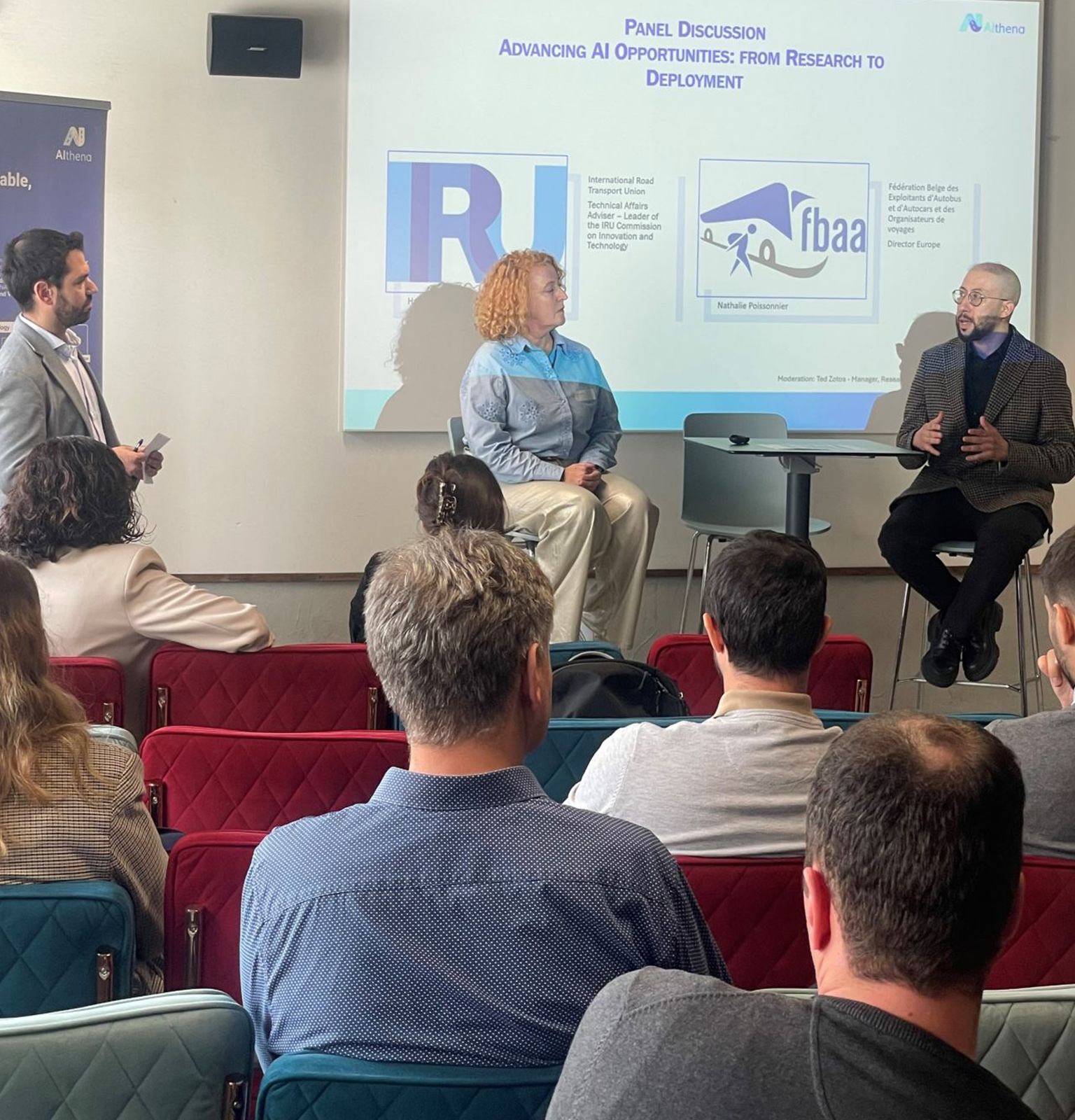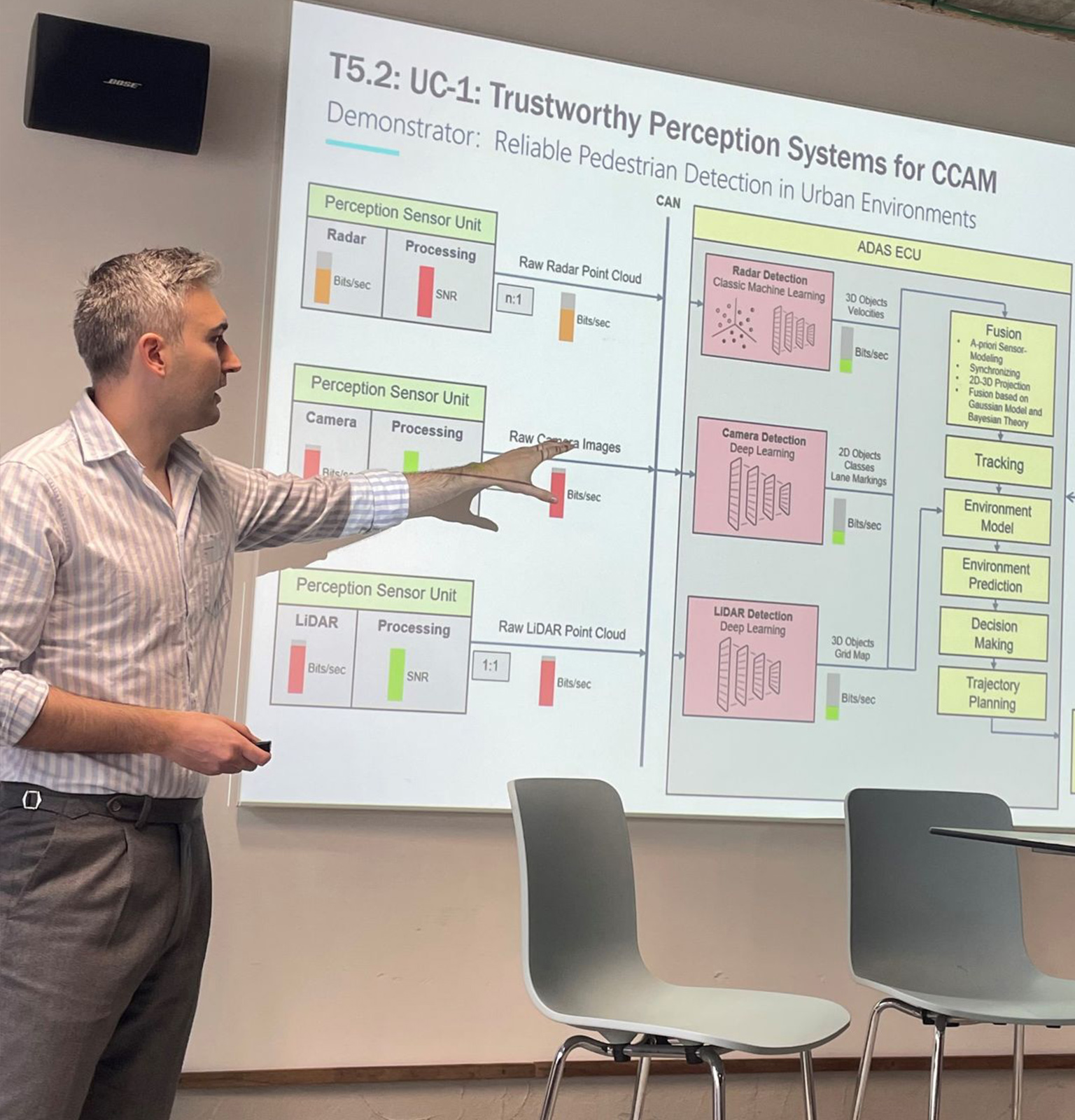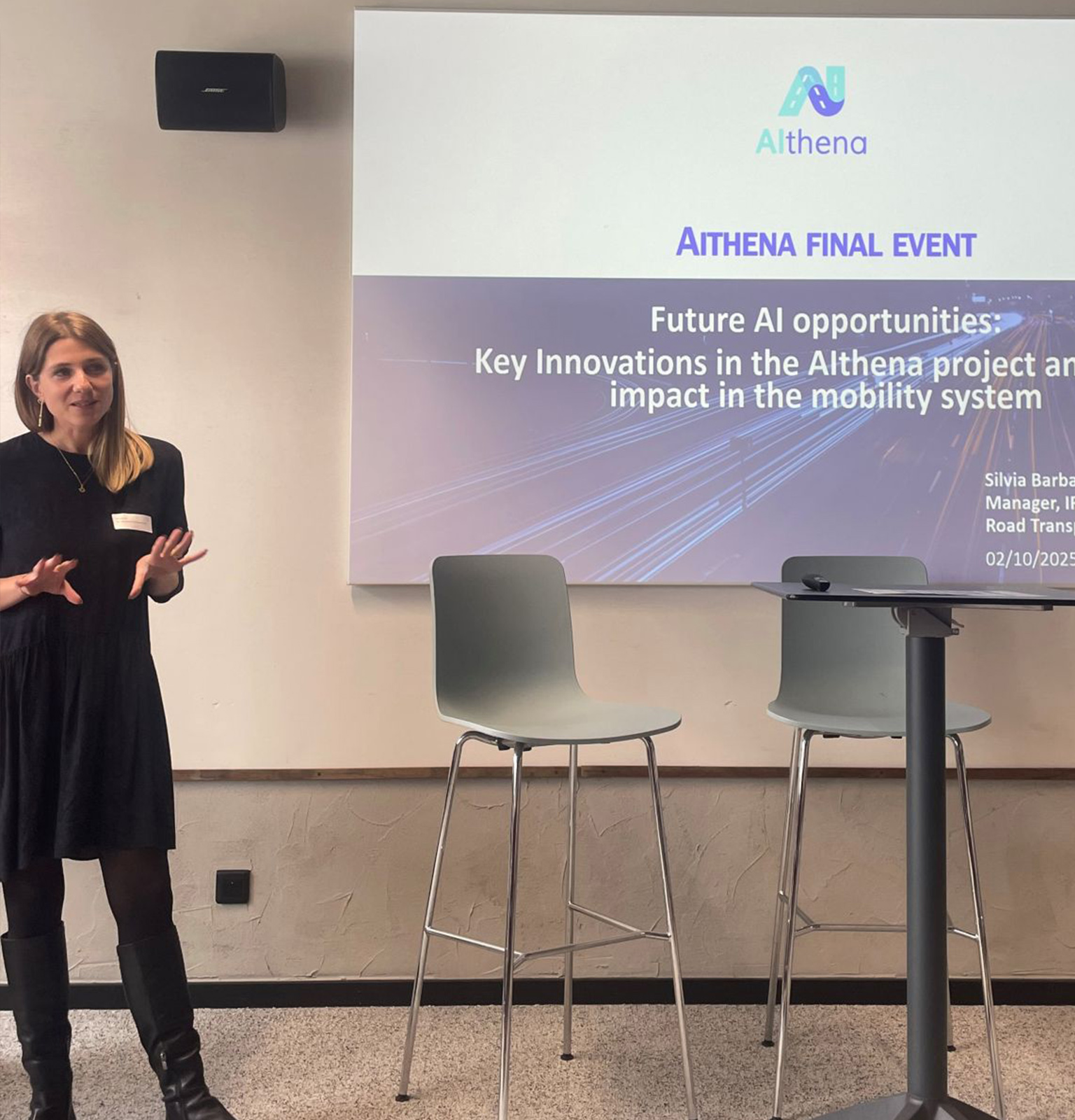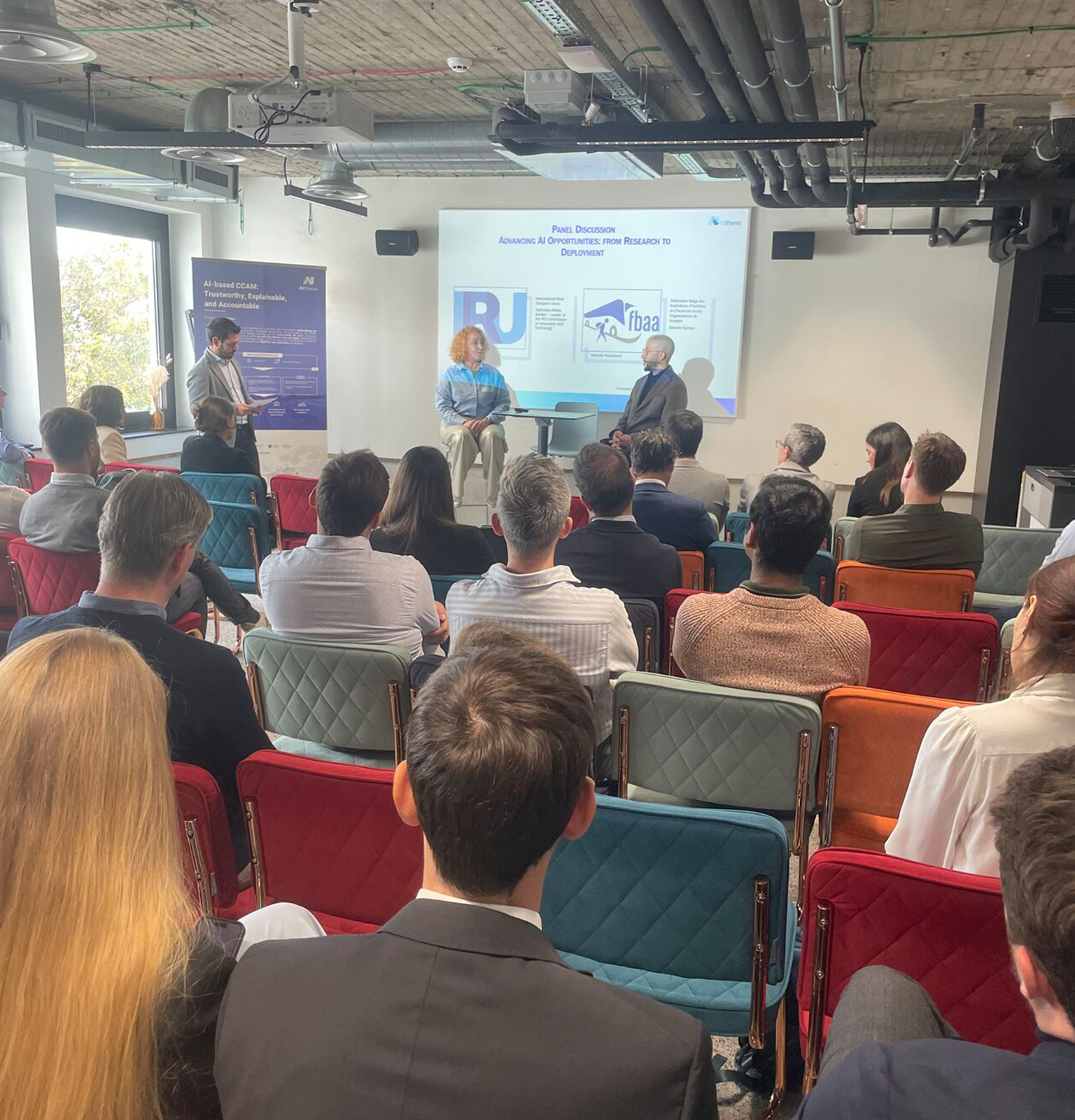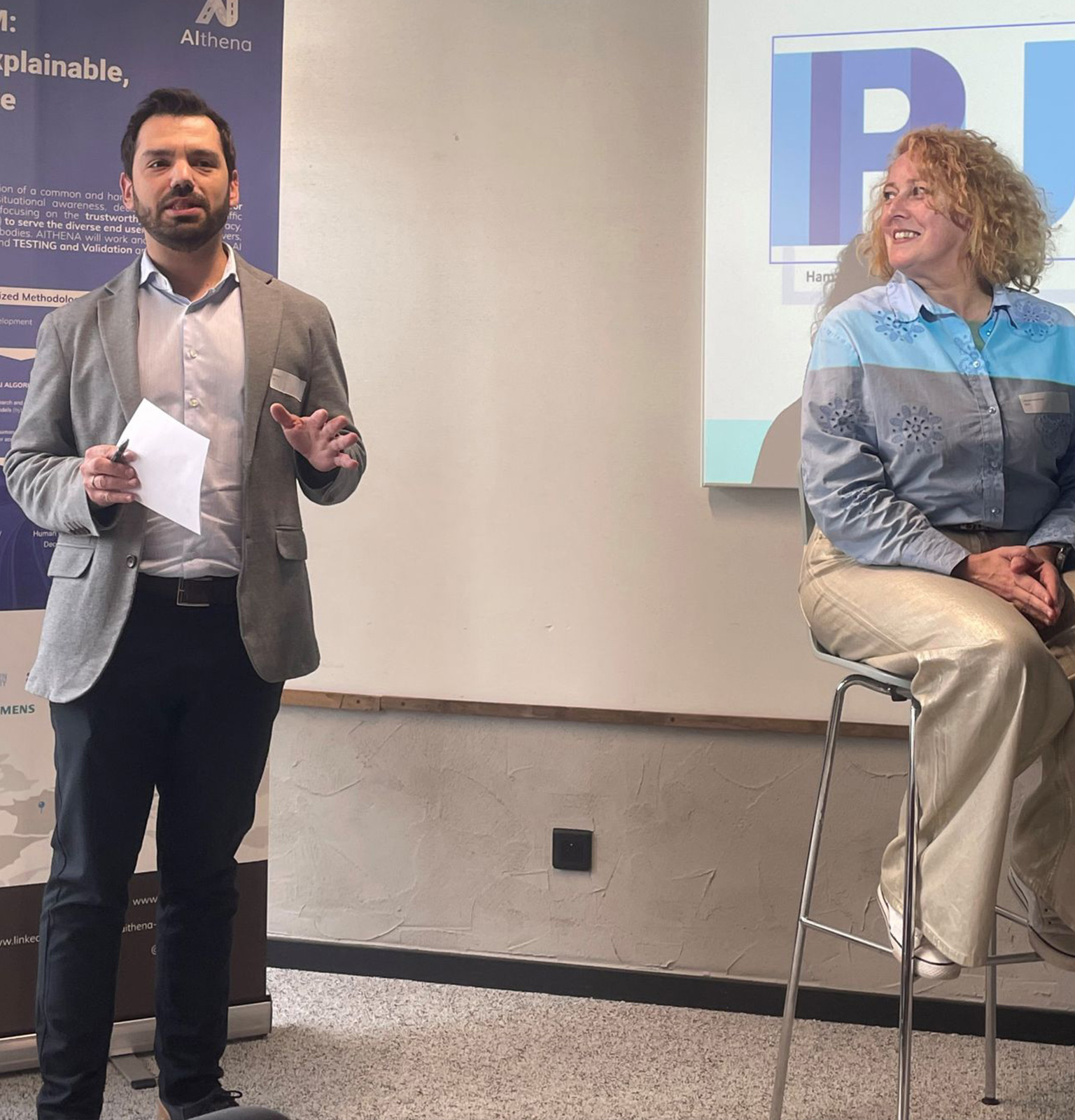Three years of research, four real-world demonstrations: AIthena has shown how AI in mobility can be explainable, safe and compliant.
AI is rapidly shaping the future of mobility. But before new AI systems hit European roads, they must be proven to be safe, transparent and trusted.
The Artificial Intelligence: Trustworthy, Explainable and Accountable (AIthena) project – funded by the EU and SERI, as part of the Connected, Cooperative and Automated Mobility (CCAM) initiative – was launched to close the gap between AI research and real-world transport operations through four demonstrations. IRU was a key project partner.
AIthena addressed key challenges in deploying AI in mobility, from data governance and anonymisation to validation in real environments and public acceptance, with the goal of developing AI that is both technically reliable and socially trusted.
The project’s final event took place recently in Brussels.
IRU EU Director Raluca Marian said, “With AIthena, we showed how AI systems can be designed to be safe, explainable and usable for those working in mobility every day.”
Over three years, the project delivered a set of tools and frameworks to support explainable, ethical and safe AI in transport. These include tools for explainable AI, a privacy-preserving anonymisation module, and combined simulation and real-world testing pipelines to validate systems before deployment.
The project also developed advanced perception and decision-making models, validation environments linking virtual and physical testing, and governance structures to guide responsible AI use in connected and automated mobility. The results are available on both the IRU dedicated web page and the AIthena web page.
AI is already present in vehicles, from driver assistance systems to onboard services.
However, more advanced AI in software-defined vehicles and higher levels of automation require a higher degree of trust and acceptance. IRU played a key role in ensuring that the project reflected the operational needs of operators and regulators, linking research outcomes with real-world challenges.
AIthena’s results represent an important step towards trustworthy AI deployment in the transport sector. Its exploitation roadmap sets out how tested technologies can move from research to near-market applications.
The EU Artificial Intelligence Act now defines how AI used in vehicles and mobility must be developed, tested and deployed. AIthena’s work on explainability, anonymisation and validation contributed directly to meeting these new requirements. This is part of a wider EU regulatory framework – including the Data Governance Act, Data Act and Cyber Resilience Act – designed to ensure secure and trustworthy AI use.
“As the project ends, the next challenge is scaling these solutions from pilots to real operations,” said Raluca Marian.
IRU will continue engaging in this evolving framework to support the safe, practical and compliant deployment of AI in transport.

